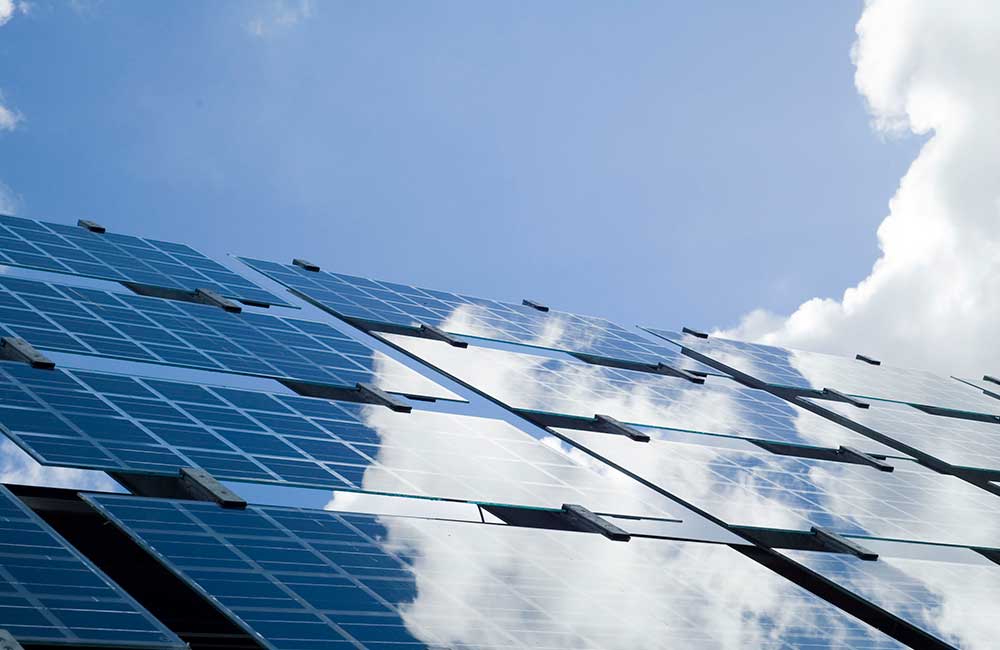More information:
Akademiska Hus launches its single largest solar panel initiative
Tuesday, 14 December 2021
Since 2007, Akademiska Hus has been equipping Sweden’s campuses with solar panel arrays as part of an initiative to reduce the amount of supplied energy and instead invest in renewable energy sources. In recent years, the number of on-campus installations around the country skyrocketed, and the company is now taking yet another large green step forward to create even more sustainable campuses.
Akademiska Hus is investing approximately SEK 14 million in nine new solar panel arrays at Lund University, including on the roofs of the Centre for Languages and Literature, Eden, Annex and Geocentrum buildings. The largest array will be placed on the roof of the Biomedical Centre (BMC), which will cover an area of approximately 2,500 m2 and will produce an impressive 450,000 kWh per year once it is in operation. This will make it Akademiska Hus’ single largest solar panel array ever.
“With the record-breaking initiative that Akademiska Hus is now launching, we will have installed solar panels on essentially every roof that is suitable for the purpose in our property portfolio in Lund. This accomplishment is proof that we are dedicating considerable effort into achieving a more sustainable energy supply and that we, together with Lund University, are contributing to a fossil-free society. More solar panels will also ensure that electricity production and consumption are close to each other, which reduces transmission losses in the grid,” says Magnus Öhrman, group manager in energy and technology at Akademiska Hus.
Climate neutrality target
Akademiska Hus has set high climate targets and adopted a vision for a zero carbon footprint. Akademiska Hus has previously installed solar panels in Lund on the roofs of the Ecology, Maxlab, Kemicentrum, Biologcentrum and Byrålogen buildings, as well as the company’s own office building, Handsken. In total, annual production at the already existing and the nine new arrays will reach just over 2 million kWh of environmentally friendly solar power. This energy will be used in its entirety within Akademiska Hus properties on campus for ventilation, pumps, lighting and other building installations. It corresponds to the average consumption of one hundred normal-sized single-family homes, or to drive approximately three laps around the globe in an electric car.
“Akademiska Hus’ solar panel initiative is in line with Lund University’s environmental and sustainability goals and contributes to local electricity production. Placement of the solar panels on rooftops also means that land does not need to be used for electricity production,” says Claes Nilén, environmental manager at Lund University.
“Lund University must serve as a role model for sustainability and by using their energy resources wisely, they can follow the UN’s global goals. Measures like these therefore not only represent an investment in the future, they also enhance the university’s credibility in sustainability issues,” says Heiko Herwald, vice dean with responsibility for sustainability issues at the Faculty of Medicine.
Installation of the nine new solar panel arrays will begin in December 2021, with commissioning planned for the summer of 2022.
About Akademiska Hus and solar panels
Currently, Akademiska Hus has a total of 90 facilities in its property portfolio that generate over 8.2 million kWh of renewable electricity annually for Swedish centres of education. Over the next few years the property company plans to take further measures and install more solar power arrays, which, when completed, will help Akademiska Hus to achieve solar power production in excess of 12 million kWh per year.